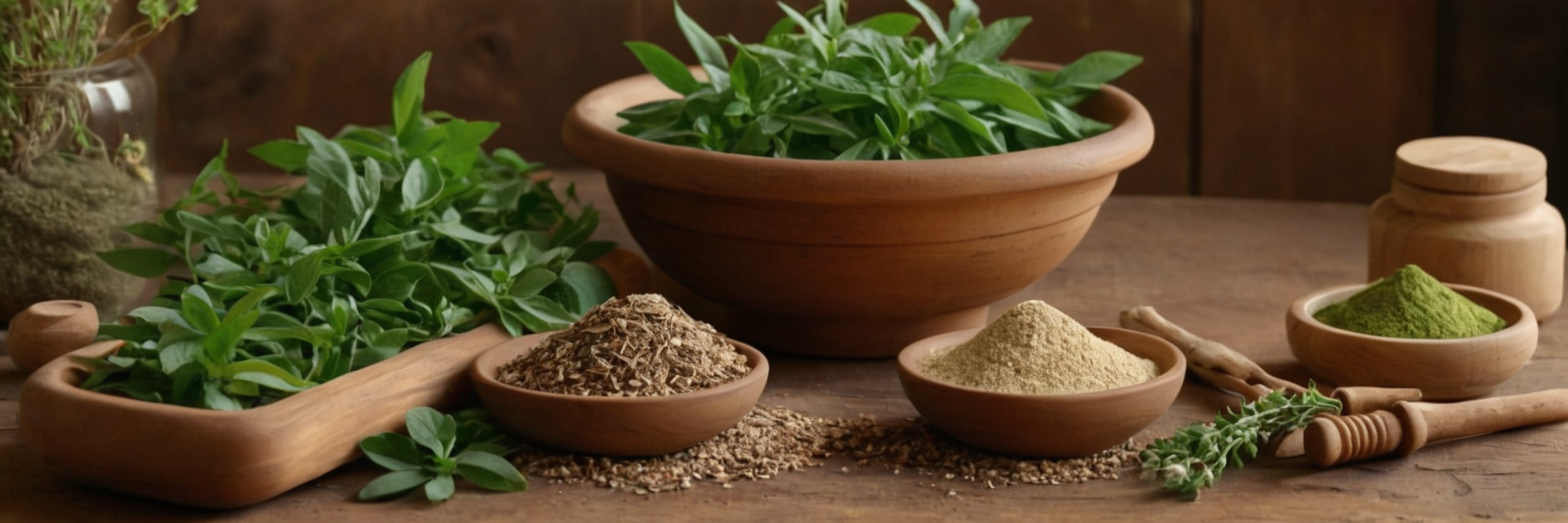Your cart is currently empty!
Ashwagandha: The Ancient Herb Revolutionizing Modern Wellness
—

Ashwagandha, also known as Withania somnifera, isn’t just another health herb used as a health booster. It’s packed with a wide range of benefits that have their roots in ancient principles and make a splash in modern health science.
The story of ashwagandha began thousands of years ago in India. Its name comes from Sanskrit, meaning “smell of horse” — a description of its earthy aroma and the healing properties it offers.
Known as “Indian raingang” or “winter cherry,” ashwagandha is used in Ayurveda, India’s ancient system of medicine. Today, it’s a hot topic in the health field, and for good reason.
Ancient Ayurvedic texts like the Charaka Samhita and Sushruta Samhita describe ashwagandha as a rasayana (rejuvenator) that promotes vitality and longevity. Ashwagandha is an immunity modulator herb and it is a plant of the Solanaceae family.
In ancient times, a plant was named on the basis of its properties, shape and smell, because the juice of the Ashwagandha plant smells like horse urine, probably for this reason it is named Ashwagandha (Ashwa meaning a horse + gandha meaning smell).
Dr. Spring Lad, a leading Ayurvedic physician, describes ashwagandha as “a bridge between ancient wisdom and modern medicine.” In traditional practices, it was used to reduce stress, increase energy, and promote overall health.
The historical journey of Ashwagandha dates back over 3,000 years. Ancient texts such as Charak Samhita and Sushruta Samhita highlight its versatile uses.
Charak Samhita: Describes Ashwagandha as an important herb for increasing the life force (Ojas), boosting immunity and enhancing longevity.
Sushruta Samhita: Details its use in treating inflammatory conditions and promoting physical strength.
Mahabharata: In it, warriors were given medicinal tonics to recover from exhaustion and injuries after the war, in which Ashwagandha was used.
During the medieval period, ashwagandha’s popularity spread beyond India through trade routes. Arab traders introduced it to the Middle East, and it eventually reached Europe. In the 16th century, Persian and Arabic medicinal texts referred to it as “Indian ginseng,” underscoring its adaptogenic properties.
Ashwagandha gained global attention in the 20th century when scientists began studying its adaptogenic effects, which help the body manage stress.
Research by Indian pharmacologists in the 1960s revealed its benefits in reducing anxiety and improving immunity, leading to its integration into modern medicine.
Ashwagandha is considered as a rasayana (rejuvenating) herb in Ayurveda, which is helpful in reducing stress, increasing immunity and improving physical strength.
According to Prof. Chaudhary, regular consumption of ashwagandha can improve mental and physical health.
Today, ashwagandha is the subject of extensive research, and the findings are exciting. Here are some of its science-backed benefits:
Stress Relief: Ashwagandha has been posited as an adaptogen, a natural substance that helps the body manage stress. A 2019 study published in the Journal of Medicine found that people taking ashwagandha extract had significantly lower levels of stress and cortisol (stress hormone).
Brain power is restored: Ashwagandha was used to enhance memory in ancient times. Modern science supports this claim. A study in the Journal of Insightful Architectures has shown that this herbal medicine works best, especially in functions like memory and attention.
Physical performance is recovered: Fitness hobbies, meditation. A study conducted in 2015 in the Journal of the International of Society Sports Research showed that Ashwagandha hostel improved the strategies and bachelor of athletes.
Ashwagandha is no longer confined to Indian homes or Ayurvedic clinics. Its versatility has made it a mainstay of global health. Here’s how people are incorporating it into their lives:
Capsules and tablets: For those who prefer convenience, ashwagandha supplements are widely available.
Powder form: Add it to smoothies, teas or even hot milk for a traditional taste.
Skincare products: Its anti-inflammatory properties make it a popular ingredient in modern cosmetics.
Want to add ashwagandha to your daily routine? Here’s a simple recipe:
Instructions to Prepare Ashwagandha Golden Milk
Ingredients:
1 cup milk (dairy or plant-based)
1/2 tsp Ashwagandha powder
1/4 tsp turmeric
A pinch of cinnamon
Honey to taste
Method:
Heat the milk gently.
Stir in the Ashwagandha powder, turmeric, and cinnamon.
Sweeten with honey and enjoy before bedtime for a restful sleep.
Benefits of Ashwagandha| Dr. Bimal Chhajer| by – SAAOL Heart Centre
